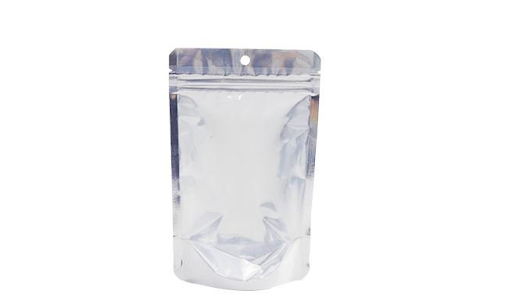
In today’s fast-paced world, the demand for effective, durable, and versatile packaging solutions is greater than ever. One such solution that has gained widespread popularity across various industries is the plastic pouch. These pouches are not only lightweight and cost-effective but also offer a range of features that make them ideal for a wide array of products. From food and beverages to pharmaceuticals and cosmetics, plastic pouches have become a go-to choice for many businesses. In this blog, we will explore the industrial usage of plastic pouches for packaging, focusing on their advantages, applications, and why they have become an essential part of modern packaging solutions.
The Rise of Plastic Pouches in Industrial Packaging
Plastic pouches have revolutionized the packaging industry with their convenience, flexibility, and sustainability. Unlike traditional packaging methods, such as glass jars or metal cans, plastic pouches offer a lightweight alternative that reduces transportation costs and minimizes the environmental footprint. This shift toward plastic pouches is driven by the need for packaging solutions that not only protect products but also appeal to consumers in terms of functionality and design.
One of the key advantages of plastic pouches is their ability to be customized to fit specific product requirements. Whether it’s a small pouch for single servings or a large one for bulk products, manufacturers can tailor the size, shape, and material to suit the needs of their customers. Additionally, plastic pouches can be designed with various features, such as resealable closures, spouts, and handles, making them versatile and user-friendly.
Advantages of Using Plastic Pouches for Industrial Packaging
Plastic pouches offer a myriad of benefits that make them a preferred choice for industrial packaging. Here are some of the key advantages:
Lightweight and Cost-Effective
Plastic pouches are significantly lighter than traditional packaging materials, which translates to lower shipping costs and reduced fuel consumption. This not only makes them more cost-effective but also contributes to a smaller carbon footprint.
Durability and Protection
Despite their lightweight nature, plastic pouches are highly durable and provide excellent protection against external factors such as moisture, air, and contaminants. This is particularly important for industries like food and pharmaceuticals, where product integrity is crucial.
Versatility in Design
Plastic pouches can be easily customized to meet the specific needs of different products. For instance, a resealable pouch is ideal for products that require multiple uses, such as snacks or pet food. The ability to reseal the pouch helps maintain the product’s freshness and extends its shelf life.
Space-Efficient
Compared to rigid packaging options, plastic pouches take up less space on shelves and during transportation. Their flexibility allows them to be stacked or packed more efficiently, maximizing storage space and reducing logistical costs.
Sustainability
Many plastic pouches are now being made from recyclable materials, making them a more sustainable option. Additionally, the reduced weight of plastic pouches means that less material is required for their production, further lowering their environmental impact.
Industrial Applications of Plastic Pouches
Plastic pouches are used across a wide range of industries due to their adaptability and practical benefits. Here are some of the primary industrial applications:
Food and Beverage Industry
In the food and beverage industry, plastic pouches are widely used for packaging snacks, sauces, juices, and more. The resealable pouch, in particular, is popular for items like dried fruits, nuts, and pet food, where maintaining freshness is key. Plastic pouches are also used for liquid products, as they can be designed with spouts for easy pouring.
Pharmaceuticals
The pharmaceutical industry relies on plastic pouches for packaging medications, supplements, and medical devices. The pouches provide a barrier against moisture and contaminants, ensuring that the products remain safe and effective. Resealable pouches are especially useful for packaging items that need to be accessed multiple times, such as vitamins or wound care products.
Cosmetics and Personal Care
Plastic pouches are increasingly being used in the cosmetics and personal care industry for products like lotions, shampoos, and facial masks. The flexibility of plastic pouches allows for unique designs that can differentiate products on crowded retail shelves. Additionally, resealable pouches offer convenience for consumers who may want to take their products on the go.
Industrial and Chemical Products
For industrial and chemical products, plastic pouches provide a safe and reliable packaging solution. They can be used to package powders, liquids, and granules, offering protection against spills and contamination. The resealable feature is particularly beneficial for chemicals that need to be stored securely after opening.
The Future of Plastic Pouches in Packaging
As industries continue to seek out innovative and sustainable packaging solutions, the use of plastic pouches is expected to grow. Advancements in materials and technology are paving the way for even more versatile and eco-friendly pouches that meet the demands of both businesses and consumers. The development of biodegradable and compostable pouches is one area where significant progress is being made, offering a potential solution to the environmental concerns associated with plastic packaging.
Conclusion
Plastic pouches have become an integral part of industrial packaging due to their versatility, durability, and cost-effectiveness. Whether it’s for food, pharmaceuticals, cosmetics, or industrial products, these pouches offer a practical and efficient way to package and protect a wide range of items. The rise of resealable pouches has further enhanced their appeal, providing added convenience and functionality for both manufacturers and consumers.







Write a comment ...